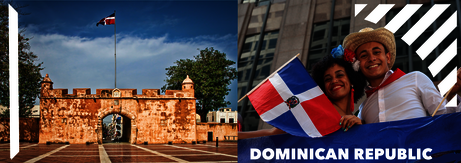Summary of operations
Road Infrastructure: Financing for 148 kilometers of highways.
Energy: Financing for the generation of 80 megawatts of clean renewable energy.
Agro Sector: US$ 60 million for the strengthening of the agricultural sector with a sustainable technological approach.
A 228% increase in the amount estimated in the 2021-2026 country strategy, reaching US$ 1.8 billion. In the previous five-year period the disbursement amounted US$ 533.9 million.
PROJECTS

Coral Highway Project
It consisted of the construction of a 70-kilometer-long, 4-lane highway, for which financing of US$70.0 million was allocated.
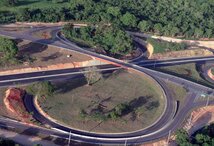
Improvement and Expansion of the Eastern Road Corridor for road sections
San Pedro de Macorís-La Romana Section, La Romana Beltway Section and Eastern Tourist Boulevard Section, totaling 78 kilometers in length and representing the best road infrastructure in the country.
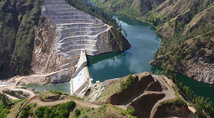
Palomino Hydroelectric Project
With a clean and renewable energy generation capacity of 80 megawatts, it is located in the Province of San Juan. For its execution, the Bank allocated financing for a total amount of US$ 130.0 million
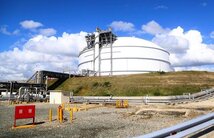
Construction of a 50-kilometer gas pipeline in San Pedro de Macorís
Loan in favor of AES Dominicana for a total amount of US$54.00 million.
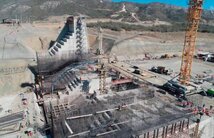
Montegrande Multipurpose Dam Project Phase III
With current financing of US$249.6 million
CABEI will develop projects to combat climate change in the region with Korea's Environmental Industry and Technology Institute
![[Translate to English:] [Translate to English:]](/fileadmin/_processed_/6/1/csm_20220712154134-D8K_1842_6c5d287927.jpg)
The multilateral and KEITI, the Republic of Korea's leading state institute in the field of climate change, water management and environmental programs, signed a memorandum of understanding.
Seoul, July xx, 2022. – The member countries of the Central American Bank for Central American Integration (CABEI) will be able to develop environmental policies, programs and projects on climate change with the support of high-level experts in this area, such as those from Korea's Environmental Industry and Technology Institute, thanks to a memorandum of understanding signed between the multilateral and the Institute.
The collaboration framework includes the provision of a technical assistance service for project preparation, as well as activities in environmental sectors, air pollution abatement, control and monitoring, water management, protection, sustainable use and rehabilitation of soil and groundwater, as well as climate change data production and management, and climate change and/or environmental education and awareness.
"This agreement is very important for our region because we will be able to learn from KEITI's expertise on climate change, a problem that CABEI faces from different angles, with an Environmental and Social Policy, and strategic alliances such as this one, with which we can help our economies become greener every day" explained CABEI Executive President, Dr. Dante Mossi.
CABEI and KEITI have been working together since 2021, when the latter approved US$400,000 of the US$600,000 cost of the feasibility studies that will enable the modernization and expansion of the wastewater treatment plant and existing sewage systems in the city of Liberia, Costa Rica, benefiting more than 84,000 people. As well as a contribution of US$200,000 for the small-scale environmental installation project in the Republic of Panama.

